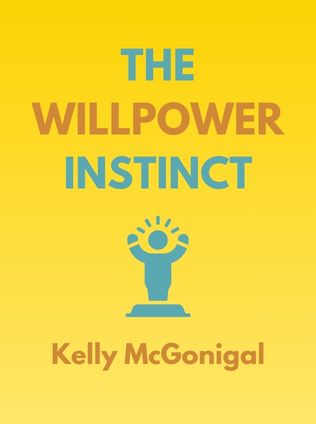
The Willpower Instinct
How Self-Control Works, Why It Matters, and What You Can Do to Get More of It
By Kelly McGonigal
Published 12/2011
About the Author
Kelly McGonigal, Ph.D., is a health psychologist and lecturer at Stanford University, specializing in the fields of stress management and the psychology of willpower. As a pioneer in the field of “science-help,” she bridges the gap between cutting-edge scientific research and practical applications for personal development. McGonigal is also known for her courses on willpower, which have been transformative for thousands of students. Her work has earned her acclaim not just in academic circles but also among those seeking to improve their lives by harnessing the power of self-control and mindfulness.
Main Idea
The Willpower Instinct by Kelly McGonigal explores the concept that willpower is not just a moral virtue or a trait that some people have more of than others. Instead, it is an innate biological instinct wired into our brains, essential for controlling our behaviors, appetites, and emotions. The book presents a framework for understanding willpower, how it is affected by various factors such as stress, sleep, and distraction, and offers practical strategies to strengthen it. McGonigal asserts that by understanding the science behind willpower, we can learn to harness and improve it, leading to better health, relationships, career success, and overall well-being.
Table of Contents
- Introduction to Willpower
- The Prefrontal Cortex: The Willpower Control Center
- Distractions and Decision Fatigue
- Training the Brain: Meditation and Willpower
- Physical Well-being and Willpower
- Stress and its Impact on Self-Control
- The Social Influence on Willpower
- Dealing with Desire and Cravings
- The Downside of Moral Licensing
- Conclusion: Practical Willpower Strategies
Introduction to Willpower
Willpower, as McGonigal explains, is often misunderstood as a moral virtue or a fixed trait that one either possesses or lacks. However, willpower is actually a biological function, akin to a muscle that can be strengthened with proper exercise or fatigued through overuse. McGonigal introduces willpower as a dynamic resource that fluctuates throughout the day, influenced by our physiological and psychological states. The book sets the stage by debunking common myths about self-control and encourages readers to view willpower as an essential skill that can be developed and nurtured.
The Prefrontal Cortex: The Willpower Control Center
In the second chapter, McGonigal delves into the neuroscience of willpower, specifically the role of the prefrontal cortex. This part of the brain is responsible for self-control, decision-making, and the regulation of emotions. McGonigal describes the prefrontal cortex as the “willpower control center,” emphasizing that some individuals may have a more developed prefrontal cortex, giving them a natural advantage in self-control.
However, even for those who struggle with impulsivity, McGonigal reassures that the prefrontal cortex can be trained and strengthened. She explains that our brain operates with "one brain but two minds"—one that seeks immediate gratification and another that prioritizes long-term goals. The constant battle between these two minds is a central theme in the discussion of willpower. When the prefrontal cortex is compromised—by stress, fatigue, or distraction—our immediate gratification mind often wins out, leading to impulsive decisions.
“The human brain was not designed to handle the temptations of modern life. But by understanding the brain’s design, we can learn to manage these temptations and strengthen our willpower.” – Kelly McGonigal
This insight is crucial because it shifts the responsibility from a perceived personal failing to a biological challenge, making the struggle with willpower a more universal and understandable issue.
Sign up for FREE and get access to 1,400+ books summaries.
You May Also Like
The Subtle Art of Not Giving a F*ck
A Counterintuitive Approach to Living a Good Life
By Mark MansonRich Dad Poor Dad
What the Rich Teach Their Kids About Money - That the Poor and Middle Class Do Not!
By Robert T. KiyosakiHow To Win Friends and Influence People
The All-Time Classic Manual Of People Skills
By Dale CarnegieFreakonomics
A Rogue Economist Explores the Hidden Side of Everything
By Steven D. Levitt and Stephen J. Dubner



















